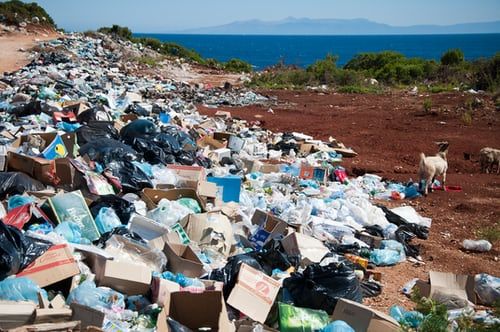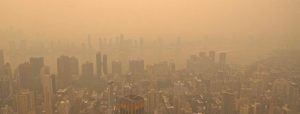According to the Greenpeace Southeast Asia Analysis of IQAir data, over 120,000 people died in India in 2020 as a result of air pollution and related problems. This caused economic damages of about Rs 2 lakh crore.
Also read: World Environment Day 2021: History, theme, significance
Pollution – air, water, land, space and thermal – has been affecting the environment, wildlife and human life across the globe.
The theme for World Environment Day 2021 is ‘Ecosystem Restoration’. Pakistan will be the global host for the occasion.
1) Around 8.3 billion tons of plastic have been produced worldwide in the last seven decades
According to a 2019 report by the Guardian, approximately 8.3 billion tons of plastic have been produced worldwide since the 1950s. This figure is equivalent to the weight of more than 800,000 Eiffel Towers. About 30% of the plastic produced is still in use and the rest has been disposed of, the report added. Only 9% of it has been recycled.
Also Read: Pygmy hogs come back from the brink of extinction, courtesy captive breeding
2) People in India would live an average 4.3 years longer if the country met the global guidelines for particulate pollution
According to a 2018 study by Air Quality Life Index (AQLI), developed by researchers at the University of Chicago, air pollution cuts global average life expectancy by 1.8 years per person. The effect of pollution on life expectancy is worse than HIV/AIDS, cigarette smoking, and even terrorism, the research pointed out.
3) Eight million metric tons of plastic is dumped into oceans every year
Humans dump plastic equivalent to the weight of nearly 57,000 blue whales into the oceans every year, conservation.org says. It adds that at this rate by 2050, ocean plastic will outweigh all of the ocean’s fish.
Also read: After 112 years in hiding, ‘extinct’ giant tortoise found in the Galapagos
4) As many as 12,000 people died of the Great Smog in London
In 1952, as many as 12,000 people lost their lives after a yellow-brown smog, carrying poisonous gases from the factories, flooded the London air. The smog lasted five days. According to History.com, residents in some areas were unable to see their feet as they walked. All transportation in the city was paralyzed except for the London Underground train system.
5) Nine out of 10 people breathe air that exceeds WHO guideline limits
The World Health Organization says that low- and middle-income countries suffer from the highest exposure to pollutants. About nine out of 10 people breathe air that exceeds WHO guideline limits. WHO adds that pollution causes about seven million premature deaths every year. These deaths are largely a result of increased mortality from stroke, heart disease, chronic obstructive pulmonary disease, lung cancer and acute respiratory infections.







